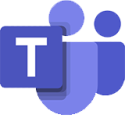We are happy to announce the rebranding of our Firm to ACTS CPAS & ADVISORS, PLLC. New Name, New Look - SAME GREAT TEAM
Lead generation defined: Navigating paid vs. organic

In the small business world, the quest for leads is much like searching for treasure. While there’s no true “X marks the spot” on the lead generation treasure map, there are certainly two different paths you can take. And as farfetched as it may seem, you can take both paths at the same time. So, let’s talk about paid vs. organic lead generation.
Two sides of the coin
As the name implies, paid lead generation involves money. You pay for ads through Facebook or LinkedIn, Google Ads or sponsored content. Basically, you’re buying visibility so you can reach a wider span of potential leads. On the flip side, organic lead generation is when you grow your customer base more naturally. Think search engine optimization (SEO), content marketing and social media platforms without paying for ads.
The paid path
If you’re looking to fast-track your lead generation, paid can be the right path to take. It’s fast and direct, and it gets you in front of potential customers quickly. It’s ideal for meeting short-term goals and can be effective during product launches or promotional campaigns. But this path takes a mighty big budget (it costs money, after all).
To use paid lead generation to your advantage, follow these three best practices.
1. Know your target audience
Make sure you know exactly who your ideal customer is before you go live with paid advertising. You want to ensure your messaging gets to the right demographic, so use the targeting tools available to you in platforms like Google Ads and Facebook.
2. Use analytics
Platforms like Google Ads and Facebook provide data so you can track and analyze the performance of your campaigns. Make adjustments to your strategies based on what the data insights tell you.
3. Create quality over quantity
Craft engaging and compelling ads that will resonate with your target audience. It’s not just about reaching people; it’s about reaching the right people. Also, keep your budget in mind when you consider multiple ads.
The organic route
While the paid path can get you the quick results you want, the organic route moves a little slower. It takes time, patience and consistency. But it’s more sustainable and cost-effective in the long run. When you create valuable content, optimize your website with SEO best practices and engage with your audience via social media, you start building a community around your brand.
When your goal is organic lead generation, keep the following in mind:
1. Content reigns supreme
Address the pain points and questions your target audience has with valuable and relevant content. Use different outlets such as blogs, videos and podcasts for more exposure to your brand.
2. SEO should be your bestie
SEO may sound intimidating, but it’s a great way to drive organic traffic. Be sure to optimize your website and content for search engines by using relevant keywords, improving your website speed and keeping mobile-friendliness in mind.
3. Relationships are key
Use social media to engage and connect with your audience; it’s a fantastic way to build relationships. Be authentic and share educational and/or useful content with your followers.
Two paths are better than one
No hard and fast rule says you can only take the paid path or go the organic route. You don’t have to choose between the two. Using a balanced approach can work wonders. Use paid strategies to boost your visibility in the short term. This can help you when you’re just starting or launching a new product or service. At the same time, investing in organic strategies strengthens your long game and helps grow community and brand loyalty.
Your lead generation journey
Whether paid or organic, your lead generation journey isn’t a one-size-fits-all solution. You have to find the right mix that works for your business. Use the tools at your disposal to experiment, learn and adapt. The goal is to build meaningful connections with potential customers so that they can become loyal patrons. Happy lead hunting!
Back to issue









